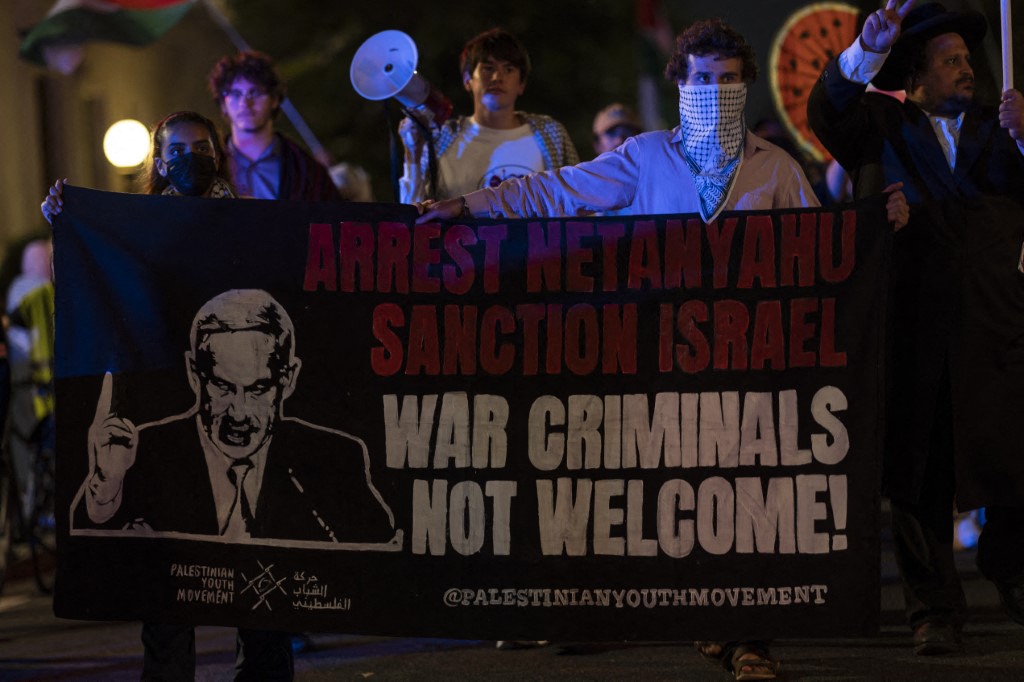Israeli Prime Minister Benjamin Netanyahu’s foremost concern has become laying the groundwork for the upcoming general elections, consolidating his grip on the Likud party after the blow he suffered by being forced to sign the Gaza agreement.
In the moments leading up to the deal, Netanyahu—facing criminal prosecution—found himself isolated abroad and besieged at home. His appearance at the United Nations epitomized his predicament, as global hostility toward Israel surged—reaching the point where even in the United States calls emerged to halt arms exports to Israel, alongside threats of boycotts in cultural, academic, and sporting arenas.
Diplomatic Failure: No Credibility
In reality, under Netanyahu, Israel suffered a disastrous diplomatic failure. According to Israelis themselves, the country appears fragmented and bureaucratic, clinging to the old military rhetoric of charts and statistics, while pleading its moral foundation, invoking borders, threats, and legal rights—a discourse rooted in the last century.
Despite Netanyahu’s dominance, the messaging was confused and divided. Diplomats and military officials spoke in different directions, each offering a separate narrative, with no central authority, no coordination, and no strategic management in a media age that tolerates no mistakes—stripping global audiences of trust in a war that hinges above all on credibility.
True, Netanyahu intervened to orchestrate a unified media and digital campaign—just as he centralized control over the conflict, sidelining anyone obstructing his path. Yet the Israeli narrative remained barren and ineffective.
Domestically, calls to end the war swelled—driven both by its futility and by Netanyahu’s failed foreign ventures, including a miscalculated blow against Qatar. Some in Israel had long warned that the state was steering toward collapse and even disappearance, with talk of reverse migration beginning to surface.
Amid isolation and Israelis’ sense of lost global respect, the breaking point came with enormous pressure from U.S. President Donald Trump, combined with a unified Arab stance that pressed hard on Hamas. Trump realized conditions were ripe to salvage his reputation as Israel’s foremost backer. He saw an opportunity to present himself as Israel’s savior—if not to Netanyahu, then to the wider Israeli public. He believes the Palestinian issue must be resolved as the source of the Middle East’s crises—the first step: halting the Gaza war as a pathway to regional peace.
Netanyahu sensed this and quietly maneuvered within his party toward internal elections in the coming weeks, laying the groundwork for advancing the national elections scheduled for next year. Party leadership elections may even be merged with the Likud conference on the 24th of next month—fast-tracking Netanyahu’s bid for support while he delays revealing the real fallout of the Gaza deal, dreading his own “day after.”
In the meantime, he appeals to his right-wing base with hardline rhetoric—knowing he has no hope with centrists or the left—vowing to force Hamas into disarmament and elimination, to secure hostage returns, to guarantee Israel’s security, and to crush the Iranian axis. Yet most Israelis associate Netanyahu, despite his strikes against Iran and Syria, with the shame of October 7 two years ago—the worst security disaster in Israel’s history, which occurred under his watch.
Another truth: Israel’s longest-serving prime minister—surpassing founder David Ben-Gurion—cannot fathom life outside the prime minister’s office, let alone political exile or prison. Netanyahu’s logic boils down to: “We faltered, but we rose with full strength and defeated all Israel’s enemies.” He portrays Israel as now standing in its strongest security position ever, facing no real threat.
His main challenge is time. The further away elections are, the harder his return becomes—so he must accelerate them. Netanyahu’s opportunity lies in deep internal divisions and a chronic political crisis that could drive the country to early elections. The government is struggling to pass the 2026 budget—indeed, the Finance Ministry has not even begun drafting it—adding to crises that a fractured government and divided nation cannot resolve. Israelis demand one slogan from Netanyahu, one he has failed to deliver despite everything: security.
Multi-Headed Opposition
Yet there is one silver lining for Netanyahu amid the bleak scene. The opposition is not united, while the right continues to appeal to a fearful public resistant to peace. Though united in purpose, the opposition is fractured by competing leadership ambitions—ranging from a fragile left to a moderate right—contrasted with a disciplined, largely unified far-right bloc rallying behind the seasoned Netanyahu.
The opposition will capitalize on Netanyahu’s failure in Gaza, where Hamas remains entrenched and poised to expand once Israeli withdrawal begins. Civil governance will remain an empty slogan, dismantling the Palestinian Authority equally hollow, while annexing the West Bank has become a distant dream.
Thus, say his opponents, there can be no security or stability under Netanyahu. What’s needed is cooperation with international and Arab partners, a clear strategy, and a unifying leadership after the war. Peace with Arab states, they argue, could secure international reconstruction funds—provided Israel presents a partner other than extremists who reject any solution.
The opposition will stress that Netanyahu’s so-called “moral victory” of releasing hostages should have happened long ago to restore Israel’s battered image.
In the end, Netanyahu may not need to resort to major wars on his “day after” to propel himself to the top again, as he did in his last confrontation with Iran. But that depends on whether things stay this way, and whether outside actors can push Netanyahu’s rivals to unite on a program—or at least on a unified stance—before election day.
If Netanyahu becomes convinced his chances are slipping, he could open the door to external wars, beginning with Iran, which many in Israel regard as the foremost existential threat. He may keep such a move in reserve, unleashing it just before Knesset elections—as a last-minute surprise.
Please post your comments on:
[email protected]
 Politics
Politics













